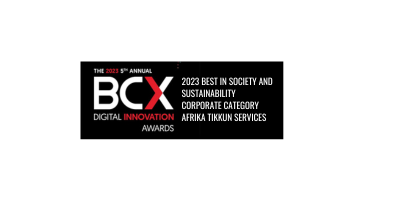BUSINESS NEWS – After the latest unemployment statistics were released last week, it has become more important than ever to invest in job-creating industries to curb unemployment.
According to Statistic SA, the number of employed people increased by 258 000 to 16.2 million in the first quarter compared to the fourth quarter of 2022.
The number of unemployed people declined by 179 000 to 7.9 million during the same quarter, while the number of people who were not economically active for reasons other than discouragement decreased by 209 000 to 13.2 million.
Of the 170 000 people who became employed, 157 000 found jobs in the finance sector, the sector that also happens to be the largest seeker of digitally skilled workers in recent labour market surveys.
“Digital skills are separating the haves and the have-nots in South Africa and it is time that equal access to this critical skill as part of education is emphasised in urgent economic intervention plans,” Onyi Nwaneri, CEO of Afrika Tikkun Services (ATS) warns.
The slight drop in South Africa’s employment rate last week can only be a testament to the significance of digital skills development and adjusting to the changing working environment in the post Covid-19 pandemic era.
Re-entering job market with skills
“Millions of skilled and unskilled South Africans, including breadwinners and the youth have re-entered the labour market over the last three years with only those with in-demand skills managing to return to employment,” she says.
Therefore, ATS, the division of Afrika Tikkun specialising in recruitment, training, placement and corporate transformation, calls for business and government to invest in job-creating industries by providing the skills workers need to enter and sustain their place in the labour force and the resources needed by small businesses to employ and up-skill them.
Nwaneri says the latest unemployment data also reveals that the era of low-skilled jobs making up the bulk of South Africa’s labour force is on its last legs. “Industries that shed the most jobs in the economic aftermath of the Covid-19 pandemic have been those traditionally known to provide employment to South Africa’s lowest skilled and therefore most vulnerable people.”
She says government must act to save its unstable tax base. “In the face of wide-scale job losses, businesses must revamp their approach to work post-pandemic to compete on a global scale, while communities languish in unemployment and poverty.
“A massive and deliberate effort to align youth skills development with the fourth industrial revolution (4IR) is the ultimate solution to all three of these mammoth challenges,” Nwaneri says.
In his state of the nation address (Sona) earlier this year, President Cyril Ramaphosa said government has recommitted to invest in programmes that incentivise businesses to take on this task.
Partnerships can curb unemployment
As Ramaphosa said in a previous address, government does not create jobs, businesses do. Partnerships between government, industry and the NGO sector will ensure that the full potential of South Africa’s labour market is used to stimulate the economy, she says.
Last year, other governments, including Australia’s, announced incentives in the form of tax breaks for small businesses investing in technology and skills and this is what South Africans need. “We must pour our resources into the areas with the highest potential returns and at the moment this largely includes the digital economy, manufacturing and agriculture.”
Although it is among the largest expenses of South Africa’s public funds from taxpayers, Eskom has been unable to provide the reliable power supply the country needs for businesses to grow and education and skills development to operate and progress with optimum efficiency.
“Therefore, the private sector must lead the charge in the quest for equal access to electricity. Rolling blackouts are a deadly threat to the lives of millions of people in a country that relies on public utility services to operate.”


